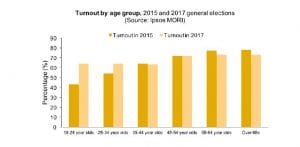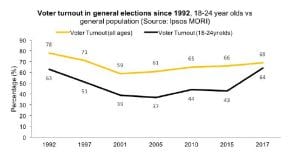THE YOUTH INVOLVEMENT IN POLITICAL ENGAGEMENT
Often times the youth are often represented as having a lack of interest in politics. Many argue that the increase in cynicism, a growing belief that all politicians are motivated by self interest, contribute to the youth’s lack of involvement. In difference, some argue that the youth are underrepresented due to being a minority. I, myself as a youth, believe that we have become a lot more interested in political engagement over time however, due to the youth being a minority in comparison to the majority, that being the +65 category, it naturally makes politics a lot harder to accommodate us, as the minority voters. Fortunately, youth involvement in political engagement has increased due to the prevalence of social media in which enlightens and encourages the youth to take part in active citizenship and political engagement, social media aids in our rebuttal against injustice.
Lack of Knowledge
There is often a lack of education in regards to citizenship that the youth are experiencing to which contribute to our lack of representation. In the school context, teachers tend to be viewed as
gatekeepers to subject knowledge, and students as having only partial access to this (Hoskins et al,2013:3). Hoskins et al’s (2017:11) study on inequalities in political socialisation in regards to school learning on citizenship reveals that political activities in school enhance political engagement however, the methods are not effective in reducing social inequalities. Resultantly, social inequalities start to cause a growing sense of cynicism in the youth, particularly working class youth and consequently lead to a disinterest in politics with limited knowledge to start with.
Inequalities
The main inequality in which contribute to the voices of the youth not being heard is due to an imbalance in population. There are simply more people aged 65+ than people aged 18 to 24 today, putting the youth at a disadvantage when voting.
Figure 1: The General Elections in 2015 and 2017
Source: Ehsan and Sloam (2017:11) Youthquake: Young People and the 2017 General Election.
(Ipsos MORI)
Figure 1.2: General elections voter turnouts from 1992 to 2017 (18 to 24 year olds vs the general population)
Source: Ehsan and Sloam (2017:9) Youthquake: Young People and the 2017 General Election.
(Ipsos MORI)
These results tell us that although there has been a massive progress in youth participation in political engagements, it still displays an apparent imbalance in youth voting versus the 65+ category due less young people and more older people aged 65 and over in the UK. Despite the increase in youth participating, we still are less in number. Even within social class, the majority of those in the 65+ category are at a economic advantage in comparison to the majority of youth of Britain, therefore parties like conservative whose policies often reflect the upper/middle class interest are most likely to be favoured by the majority of the 65+ category. Again, showing an underrepresented youth in involvement through vote turn outs by default.
Increase of Political Engagements
Fortunately there has been a increase of “youthquake”, a rise in social, cultural or political change enabled from the actions or influence of young people. Examples such as the 2017 general election, Brexit and protests against uni fees loans reflect this abundantly. Kingman (2017:11) noted in the case of Brexit, millennials heavily supported Remain. In fact, the final YouGov EU Referendum poll of 5,455 UK adults; which was undertaken on referendum day; found that 71% of 18–24 year olds had given their votes to Remain (YouGov, 2016).
Social Media
Social media has become a lot more prominent in political involvement for the youth. For example, online petitions, polls and social media hashtags etc. Youth activism seemingly carries a sense of liberalism in its approach and requires both a mixture of participatory and institutional political methods as well as a non traditional approach (Thompson et al, 2016:220).
Perhaps the youth do not always in engage in the tradition way of political involvement, it said that the growth in online petitions and social media activism has become a lot more dominant within youth participation in politics (Henn and Sloam, 2018:25). It can be assumed that the youth are motivated by frustration, individualisation and ability to connect with policies that youth relate to, although the state’s aim is to appeal to everyone, it is often challenging hence why there is a rise in youthquake (Henn and Sloam, 2018:26). The youth now have other concerns that are completely different to the past to which mainstream political parties have struggled to accommodate (Sloam, 2007:553).
In the light of this blog, it is safe to say the youth are becoming more and more active towards political engagements in predominantly non- traditional forms. Despite barriers that make engaging in politics harder for the youth, the internet is our language and where we voice our political concerns best.
To learn more about the importance of Youth in Politics, watch the video below.
Bibliography
Hoskins, B. Janmaat, J. G. Villalba, E. (2013) Learning Citizenship Through Social Participation Outside and Inside School: An international, Multilevel Study of Young People’s Learning of Citizenship, [Oniline] Available at: https://onlinelibrary.wiley.com/doi/epdf/10.1080/01411926.2010.550271 [Accessed on: 17/02/19] p3
Hoskins, B. Janmaat, J. G. Villalba, E. (2017) Tackling Inequalities in Political Socialisation: A Systematic Analysis of Access to and Mitigation Effects of Learning Citizenship At School, [Online] Available at: https://reader.elsevier.com/reader/sd/pii/S0049089X16304458?token=6DDEA986CCF6DDE0D4FE7C2DE61F87C94D08F76FD95B2A3CB0C84D7F83324C3FB3DB97E47F633FBE04EC0C72EB8B3D15 [Accessed on: 16/02/19] p11
Ehsan, R. M and Sloam, J. (2017) Youthquake: Young People and the 2017 General Election, [Online] Available at: https://moodle.roehampton.ac.uk/pluginfile.php/734808/mod_resource/content/1/Youth-Quake_Final.pdf [Accessed on: 19/02/19] p11
Sloam, J. and Henn, M. (2018) Youthquake 2017: The Rise of Cosmopolitans in Britain, Cham: Palgrave Macmillian, https://link.springer.com/content/pdf/10.1007%2F978-3-319-97469-9.pdf [Accessed on: 19/02/19] p25 -26
Ipsos MORI. (2017). How The Voters Voted In The 2017 Election, [Online] Available at: https://www.ipsos.com/sites/default/files/2017-06/how-britain-voted-in-the-2017-election_2.pdf [Accessed 19/02/19]
Sloam, J. (2007) Rebooting Democracy: Youth Participation in Politics in the UK, Oxford: Oxford University Press, [Online] Available at: https://academic.oup.com/pa/article-abstract/60/4/548/1581141?redirectedFrom=fulltext [Accessed on: 18/02/19] p553
Kingman, D. (2017) Generation Remain: Understanding The Millennial Vote, [Online] Available at: http://www.if.org.uk/wp-content/uploads/2017/10/Generation-Remain_final_October_2017.compressed.pdf [Accessed on: 16/02/19] p11
Jenkins, H. Shresthova, S. Gamber-Thompson, L. Kligler-Vilenchik, N. and Zimmerman, A. M. (2016) By Any Media Necessary: The New Youth Activism, Newyork: New York University Press p220
Digestible Pol (2014) The Importance of Youth in Politics #4,[Online] Available at: https://www.youtube.com/watch?v=n8ZCetfeXj4 [Accessed on: 20/02/19]



This blog post includes many different relevant points, relating to the topic of young people and political engagement. However, possible improvements could include involving the reader more – through including questions. Nevertheless, this blog post addresses this specific topic well.